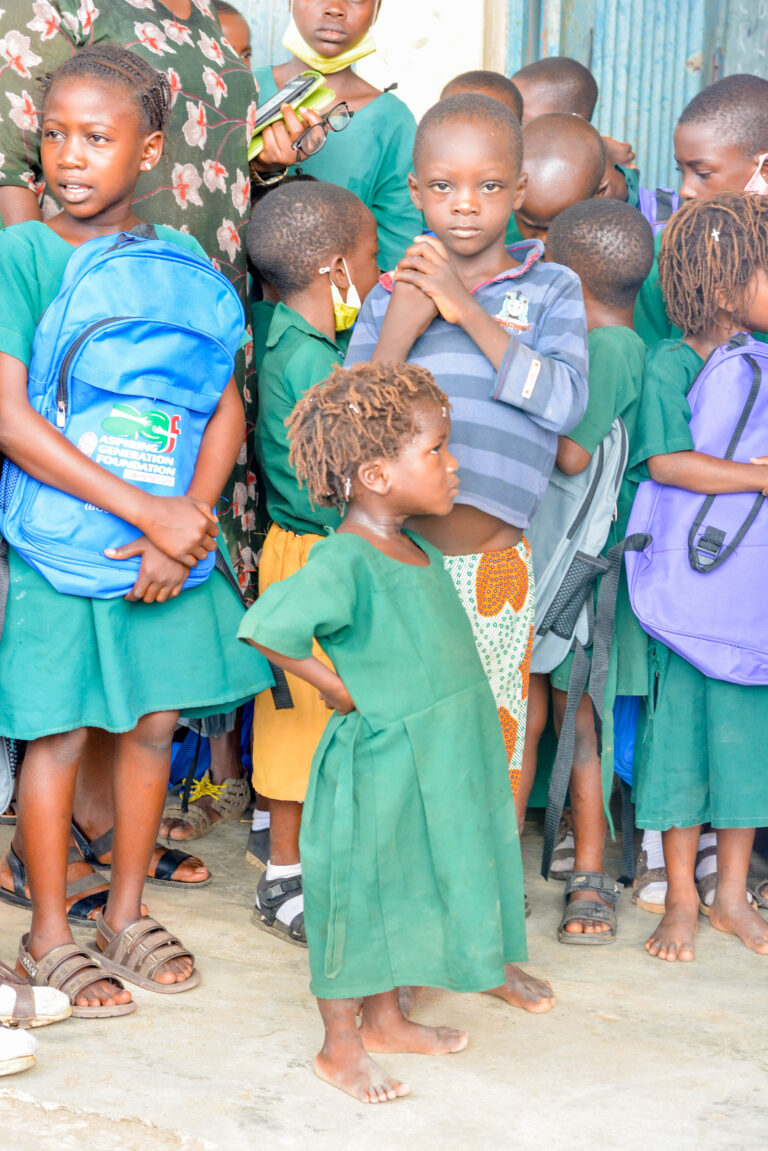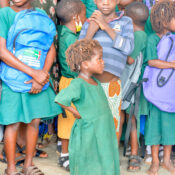Unveiling the Realities: Orphan Statistics in Rural Nigeria

Introduction:
In the vast and diverse landscape of Nigeria, the challenges faced by vulnerable populations, especially orphans in rural areas, remain deeply concerning. The plight of orphaned children in these regions reflects the broader socio-economic disparities and inadequacies in the country’s support system. As we delve into the orphan statistics in rural Nigeria, we aim to shed light on the prevailing issues, the efforts being made to address them, and the critical importance of collective action to uplift these young lives.
The Scale of the Challenge:
Orphanhood is a harsh reality for thousands of children in rural Nigeria. Orphans are children who have lost one or both parents, leaving them vulnerable and often without adequate care or support. The statistics of orphaned children in these regions are both staggering and disheartening. According to the last available data from 2021, there were an estimated 8.5 million orphans in Nigeria, with a significant proportion hailing from rural areas.
Causes of Orphanhood:
Various factors contribute to the rise in orphaned children in rural Nigeria. These include the prevalence of infectious diseases such as HIV/AIDS, which can claim the lives of parents, leaving behind young children without caregivers. Additionally, poverty, conflict, and insufficient access to healthcare facilities play a significant role in the orphan crisis, as they exacerbate the vulnerabilities of families already living on the margins.
Challenges Faced by Rural Orphans:
Orphans in rural Nigeria face multifaceted challenges that hinder their physical, emotional, and intellectual development. A lack of proper nutrition and healthcare often leads to health issues and stunted growth. Moreover, the absence of quality education and vocational training opportunities limits their chances of a brighter future, perpetuating the cycle of poverty.
Social Stigma and Discrimination:
Orphaned children are also vulnerable to social stigma and discrimination in rural communities. In some cases, they may be subjected to isolation or treated as outcasts, leading to further emotional distress. Addressing these stigmas and misconceptions is crucial to ensuring a more inclusive and supportive environment for these children.
Government Initiatives and Non-Governmental Efforts:
The Nigerian government, in collaboration with various non-governmental organizations (NGOs) and international agencies, has initiated several programs to tackle the issue of orphanhood in rural areas. These efforts range from providing essential healthcare services to creating educational opportunities and establishing orphanages and foster care systems.
One such initiative is the “National Policy on Orphans and Vulnerable Children (OVC),” which outlines guidelines for the protection and care of orphaned children. Additionally, NGOs like UNICEF, Save the Children, and local organizations work tirelessly to improve the lives of orphaned children by providing them with access to education, healthcare, and emotional support.
The Need for Sustainable Solutions:
While there has been progress in addressing orphan statistics in rural Nigeria, sustainable solutions require a comprehensive and collaborative approach. Empowering communities to take ownership of the issue and ensuring their active participation in support programs can foster long-term change.
Moreover, increasing awareness about orphanhood and its impact on children and society as a whole is crucial. This includes raising awareness about adoption and foster care options, dispelling myths and prejudices, and encouraging more people to get involved in supporting these vulnerable children.
Conclusion:
The orphan statistics in rural Nigeria paint a sobering picture of the challenges faced by thousands of orphaned children. Their plight represents an urgent call for action, demanding the combined efforts of the government, NGOs, communities, and individuals alike. By addressing the root causes, tackling social stigmas, and fostering sustainable support systems, we can make a positive impact on the lives of these young souls and pave the way for a brighter and more equitable future for all Nigerians.
All Categories
Recent Posts
Unveiling the Realities: Orphan Statistics in Rural Nigeria
support@agfworld.org help@agfworld.org donate@agfworld.org


